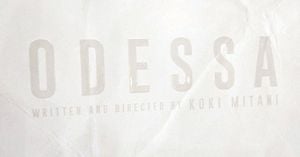Candace Owens, the American journalist and conservative commentator, has stirred significant controversy with her announcement to publish evidence claiming Brigitte Macron, the wife of French President Emmanuel Macron, was born male. This shocking assertion has generated waves across media platforms and sparked intense debate about the intersection of journalism and privacy.
Owens, known for her outspoken views and previously highlighted issues involving political figures, took to social media to reveal her findings. She asserts she has gathered undeniable proof to support her claims and plans to disclose this material on January 30. "I have gathered evidence to prove Brigitte Macron never existed," Owens stated, indicating her confidence about the revelations poised to challenge public perception of the French first lady.
The heart of the matter revolves around the alleged historical timeline of the Macrons' relationship. Emmanuel Macron was just 15 years old when he began his relationship with Brigitte, who was then 39 and his teacher. This age gap has continually raised eyebrows and prompted discussions about their unconventional romance. The timing of this claim also complicates the narrative, as it brings forth memories of previous accusations hurled against Brigitte Macron dating back to 2021 when speculation about her gender surfaced again.
Owens's claims have led to legal pressures from the Macron family, who have reportedly taken steps to silence her assertions. According to Owens, "Presidents threaten journalists only when they are truly afraid of disclosures." This comment emphasizes her belief in the vitality of free speech, particularly within the American legal framework, which she claims cannot be easily overridden by foreign threats. "There is freedom of speech in the USA; French lawyers cannot silence me," she boldly declared.
Owens's provocative claims are not without precedent. She referenced previous remarks made by French journalist Natasha Ray, who faces legal consequences for similar allegations about Brigitte Macron's gender identity. During the trial, two individuals were charged and fined 13,500 euros for spreading false information, underscoring the sensitivity surrounding the issue. Therefore, this upcoming publication promises to reignite public interest and legal scrutiny surrounding the claims made by Owens and her associates.
Continuing to navigate the controversial waters, Owens also reached out to Emmanuel Macron, proposing a "fair and balanced interview" to discuss Brigitte's past comprehensively. She laid out 21 questions she hopes to ask him, aiming to probe deeply concerning her identity, personal history, and even to request photographs from her youth. The absence of evidence from Brigitte Macron's early school years continues to play central to Owens's argument.
Emmanuel Macron has been previously vocal about the media's role in shaping narratives during his presidency. He was quoted saying, "The worst thing I face as president is fake news and fabricated stories." This statement reflects his frustrations with how stories can distort personal and public image, raised to new heights by Owens’s explosive assertions.
The anticipation surrounding the January 30 reveal looms large, and as the date approaches, so does the scrutiny over the broader ramifications of Owens's claims. This situation sheds light on the media's role as both documenter and interpreter of truth, often at the mercy of sensationalism. To date, the dialogue surrounding the nature of Owens’s claim suggests it may not only influence public perception of the Macrons but also stir active conversations about media ethics and the responsibilities journalists bear.
Owens's proclamation has invigorated discussions spanning from privacy rights to the intrinsic value of personal history. The impact of her upcoming evidence presentation, paired with Emmanuel Macron's steadfast rebuttals, may lead to groundbreaking conversations not just on the individuals involved but on societal views of gender and identity, especially within the political arena.
The stage is set for January 30, when Owens promises to release her evidence. Whether her claims stand up to scrutiny, or whether they will dissolve under pressure, remains to be seen. Regardless, it's clear this situation has evolved well beyond mere allegations, entering the complex interplay of personal narratives and the media's relentless pursuit of truth.



